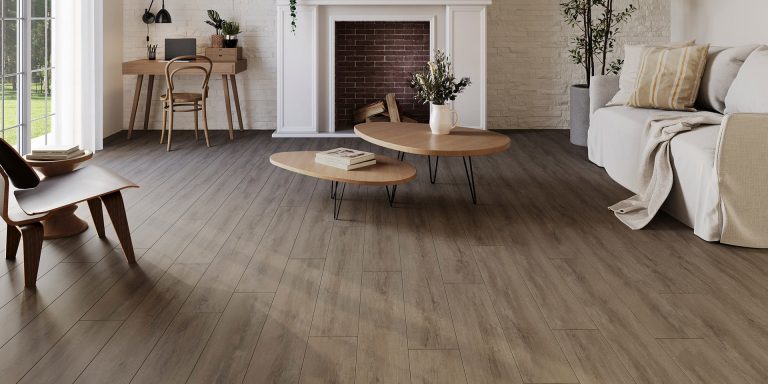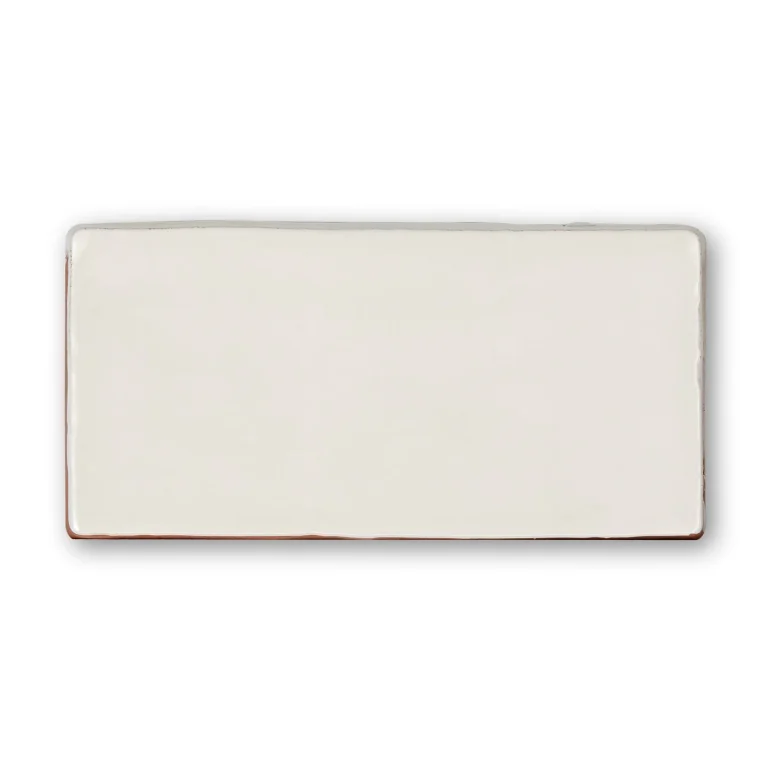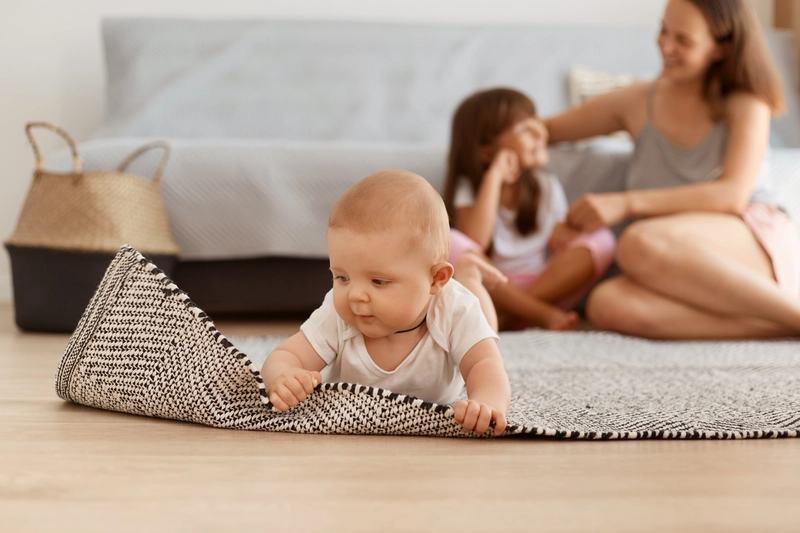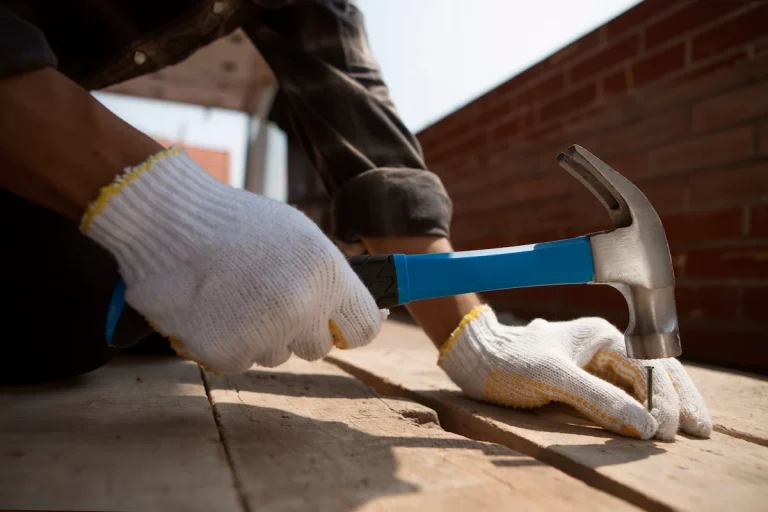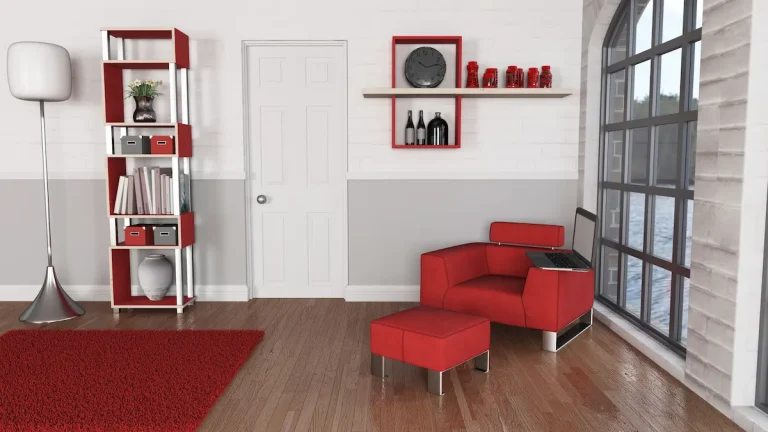Resilient flooring provides an optimal blend of durability, comfort, and aesthetic appeal, rendering it a preferred flooring option for both residential and commercial environments, including high traffic areas and healthcare applications.
This article examines the concept of resilient flooring, emphasizing its key attributes and the diverse types available, including vinyl, linoleum, rubber, and cork, and explores the various flooring categories and their unique advantages.
Additionally, it investigates the factors that contribute to the resilience of flooring and compares resilient options with non-resilient alternatives, addressing important considerations such as durability, maintenance, installation techniques, and environmental impact.
Explore the most suitable flooring solution to meet your specific requirements, considering the latest market growth and design capabilities
What Is Resilient Flooring?
Resilient flooring represents a versatile and innovative category of flooring solutions that are engineered to offer comfort, durability, and aesthetic appeal across a range of environments, from residential areas to high-traffic commercial settings and heavy traffic environments.
This category encompasses materials such as luxury vinyl, linoleum, cork, and rubber, each providing distinct advantages including water resistance and sound absorption. Recent advancements in technology, such as Quantum X technology for improved performance, and modular installation techniques, have positioned resilient flooring options as increasingly competitive in the market.
These developments also respond to the rising demand for sustainable and environmentally friendly materials within the flooring industry, driving flooring sustainability forward.
The Characteristics of Resilient Flooring
The characteristics of resilient floors contribute to its popularity among homeowners and business owners, as it effectively combines performance and aesthetics with practical features.
- Popular Choice: Combines performance, aesthetics, and practical features for homeowners and businesses.
- Exceptional Durability: Resistant to wear and scratches, making it ideal for high-traffic areas.
- Easy Maintenance: Simple to clean, with spill resistance and anti-bacterial properties for hygiene.
- Comfort & Noise Reduction: Provides sound absorption for quieter, more comfortable spaces.
- Waterproof & Versatile: Ideal for moisture-prone areas like kitchens and bathrooms, ensuring longevity.
Types of Resilient Flooring
There are numerous types of resilient floors available in the market, each providing unique advantages that address a range of preferences, styles, and functional requirements. Therefore, it is crucial to thoroughly understand the available options and the various installation processes when selecting flooring for a particular space.
1. Vinyl Flooring
Vinyl flooring is a widely preferred option due to its cost-effectiveness, diverse range of styles, and straightforward installation process, making it suitable for both residential and commercial environments.
This versatile flooring solution is available in several forms to accommodate varying needs and preferences among users. Flexible vinyl and sheet vinyl offer a soft, cushioned feel, making them ideal for areas where comfort underfoot is a priority.
- Solid vinyl provides a durable surface that is particularly suitable for high-traffic spaces.
- Vinyl composite tile is recognised for its resilience and design flexibility, enabling both homeowners and business owners to create customised aesthetics.
Each option is available in a broad spectrum of colours and patterns, allowing for seamless integration with any décor. The installation processes differ; while flexible vinyl is typically adhered to the subfloor, solid vinyl may be offered in planks or tiles that can be easily interlocked, thereby facilitating a streamlined setup.
2. Linoleum Flooring
Linoleum flooring represents an eco-friendly alternative composed of natural materials such as linseed oil, cork dust, and wood flour, providing a sustainable option for individuals and organisations aiming to reduce their environmental footprint.
This innovative flooring type not only demonstrates exceptional durability but also offers a wide range of aesthetic choices, making it a preferred selection for both residential and commercial settings. Its resilience against wear and tear ensures long-lasting performance, which can substantially diminish the necessity for frequent replacements. Furthermore, linoleum is biodegradable, allowing for its seamless incorporation into eco-conscious building practices.
Key attributes of linoleum flooring include:
- The ability to effectively withstand heavy foot traffic and high traffic areas.
- A non-toxic composition that promotes healthier indoor air quality, rendering it suitable for homes with children and pets.
- An extensive selection of colours and patterns that complement any décor style.
Given these characteristics, linoleum flooring emerges as a premier choice for those seeking to improve their environment while upholding a commitment to sustainability.
3. Rubber Flooring
Rubber flooring is recognised for its exceptional sound absorption and comfort, making it an ideal choice for high-traffic areas such as gyms, schools, and commercial spaces.
Plus these primary advantages, this versatile flooring material boasts remarkable durability, enabling it to withstand heavy usage without significant wear. Its slip-resistant properties are particularly important, as they enhance safety for individuals in busy environments where the likelihood of accidents is increased. Furthermore, the maintenance of rubber flooring is straightforward; a simple wipe with a damp cloth suffices to keep it looking pristine, which is essential for facilities committed to upholding a clean and professional image through easy to clean surfaces.
- Durable: Resistant to abrasions and impacts.
- Slip-resistant: Provides traction, thereby reducing the risk of slips.
- Low maintenance: Easy to clean and maintain.
The cushioning effect of this material not only absorbs sound but also offers a comfortable surface, making it suitable for extended use in both residential and commercial settings.
4. Cork Flooring
Cork flooring represents a distinctive and sustainable flooring solution that mimics the appearance of natural wood while delivering outstanding comfort and insulation properties. This innovative material not only enhances the aesthetic appeal of any space but also plays a crucial role in fostering a healthy living environment.
The eco-friendliness of cork flooring is derived from its renewable source; it is harvested from the bark of cork oak trees without inflicting harm on the trees themselves, thus presenting an environmentally responsible choice.
Plus its sustainability features, the comfort advantage of cork flooring is noteworthy—cork is inherently softer and warmer underfoot compared to other flooring materials, resulting in a more enjoyable experience when walking or standing. Its exceptional thermal insulation properties ensure that homes remain comfortable during the winter months and cool in the summer, thereby promoting energy efficiency and contributing to reduced heating costs and overall comfort and durability.
5. Laminate Flooring
Laminate flooring represents a cost-effective solution that effectively simulates the appearance of hardwood or stone, providing a diverse array of design options without compromising on performance.
This innovative flooring option not only emulates the aesthetic appeal of more expensive materials but also offers remarkable durability and ease of maintenance. Homeowners frequently value its scratch resistance and resilience to everyday wear and tear, rendering it suitable for high-traffic areas. Furthermore, the affordability of laminate flooring ensures it remains accessible to most budgets while allowing for impressive aesthetic versatility.
Key features of laminate flooring include:
- Availability in various styles, colours, and textures
- Compatibility with underfloor heating systems
- A quick and easy installation process
- DIY-friendly installation for home improvement projects
These attributes collectively enhance the overall value of laminate flooring, making it a preferred choice for individuals seeking to elevate their living spaces without incurring significant financial outlay.

See product: Elka 8mm V-Groove Country Oak
6. Luxury Vinyl Tile (LVT) Flooring
Luxury vinyl tile (LVT) flooring represents a premium option that effectively merges the aesthetic appeal of natural flooring materials with the durability and water resistance characteristic of vinyl. This flooring is not only a durable flooring choice but also incorporates eco-friendly materials, making it an appealing choice for a variety of residential and commercial projects.
The versatility of LVT positions it as a leading contender within the flooring industry. Notably, its high performance is particularly relevant in high-traffic areas where resilience is essential. The textured finishes of LVT, enhanced by Quantum X technology, replicate the authentic appearance of wood, stone, or ceramic, offering a sophisticated aesthetic without the maintenance demands associated with traditional materials. Consumers benefit from a broad selection of styles, colours, and patterns that accommodate diverse tastes and design preferences.
Key attributes of LVT flooring include:
- High durability against scratches and dents, ensuring it remains a scratch resistant option
- Water-resistant properties, making it suitable for kitchens and bathrooms
- Simplified installation, often featuring a click-lock design, which is DIY-friendly installation
This blend of aesthetic appeal and functionality positions LVT flooring as a compelling choice for individuals seeking a lasting investment in their spaces.

See product: Karndean Art Select Slate Melbourne
What Is the Most Resilient Flooring?
When evaluating the most resilient floor options, such as rigid core vinyl, it is crucial to assess several factors, including wear resistance, comfort, and overall performance, to determine which type aligns best with your needs.
What Makes a Flooring Resilient?
Flooring resilience is characterised by its capacity to endure wear and tear while preserving its aesthetic appeal and functionality over time, making it a critical factor in flooring selection. Ensuring that flooring can withstand daily activities without substantial degradation involves several key considerations, including the adoption of tough resilient flooring solutions.
The primary elements that contribute to this resilience include:
- Material Composition: The selection of material is essential. For example, hardwood, laminate, vinyl, and tile each possess distinct properties that influence their longevity and resistance to scratches, stains, and moisture.
- Surface Treatments: The application of protective coatings or treatments enhances flooring resilience. Products such as sealants, finishes, and water-resistant layers can substantially improve durability, making surfaces easier to maintain and less vulnerable to damage.
- Maintenance Requirements: Regular care and maintenance practices significantly affect the longevity of flooring. Adhering to manufacturer recommendations for cleaning and protective measures can extend the beauty and functionality of any flooring option.
By comprehensively understanding these factors, individuals can make informed decisions to select flooring that not only complements the aesthetic of a space but also endures the test of time in both residential and commercial environments. The inclusion of biodegradable flooring options further enhances sustainability.
Resilient Flooring vs Non-Resilient Flooring
What are resilient and non-resilient floors? Understanding the differences between resilient and non-resilient floors is essential for making informed decisions regarding flooring selection. Each category presents distinct advantages and disadvantages that can significantly affect performance, maintenance requirements, and overall cost.
1. Durability
Durability is a crucial factor when comparing resilient and non-resilient floors, as resilient options, such as vinyl and rubber, generally offer superior wear resistance and longevity.
The differences between these flooring types extend beyond mere longevity, closely relating to their material composition. Resilient floors is primarily composed of flexible materials that absorb impact and resist scratches, making them well-suited for high-traffic areas. In contrast, non-resilient options, such as hardwood or ceramic tiles, while aesthetically appealing, often lack the same level of shock absorption and may be prone to cracking under stress.
- Vinyl: Highly resistant to moisture and stains, making it ideal for kitchens and bathrooms.
- Rubber: Frequently utilised in commercial settings due to its slip resistance and durability under heavy foot traffic.
In comparison, non-resilient floors may necessitate more frequent maintenance and repairs, particularly in environments where heavy furnishings are frequently moved or where fluctuating environmental conditions may lead to potential warping or damage.
2. Comfort and Sound Absorption
Comfort and sound absorption are essential factors to consider when selecting flooring, as resilient floors typically offers superior underfoot support and noise reduction compared to non-resilient alternatives.
Among flooring options, resilient materials such as vinyl and rubber are distinguished by their unique composition, which provides enhanced comfort. These materials usually present a softer and more accommodating surface, facilitating effective shock absorption. This characteristic is particularly advantageous in high-traffic areas where prolonged standing may lead to discomfort. Additionally, their capacity to mitigate sound contributes to a quieter environment, making them well-suited for multi-level residences or office settings.
The following attributes underscore their effectiveness in flooring applications:
- Thickness: Generally, thicker resilient floors provides improved cushioning and sound barrier capabilities, enhancing underfoot support.
- Surface texture: Textured surfaces can further reduce sound transmission, contributing to noise reduction.
- Installation method: Certain installation techniques can enhance acoustic performance.
By emphasising these features, individuals can elevate their living or working environment into a space of comfort while simultaneously reducing noise pollution.
3. Water Resistance
Water resistance is a significant advantage of resilient floors, particularly in areas that are prone to moisture, where non-resilient flooring may be susceptible to water damage and deterioration.
The unique composition of resilient floors materials, such as vinyl and linoleum, enables them to withstand spills and high humidity without warping or exhibiting signs of wear. This makes them an ideal choice for spaces such as kitchens, bathrooms, and cellars, where exposure to water is commonplace.
- Unlike traditional hardwood or carpet, resilient options require minimal maintenance and tend to have a longer lifespan when exposed to wet conditions.
- With advancements in technology, many resilient products are now equipped with enhanced protective coatings that prevent stains and facilitate easy cleaning.
Homeowners and businesses should carefully consider the longevity and durability that resilient floor provides, especially in unpredictable environments. By selecting water-resistant flooring, they can ensure that their investment remains protected and visually appealing over time.
4. Maintenance and Cleaning
In the context of maintenance and cleaning, resilient floor presents a distinct advantage over non-resilient floor options, which may necessitate more intensive care and upkeep.
This advantage is primarily attributed to the inherent characteristics of these materials. Resilient floor, typically composed of vinyl or linoleum, is engineered to endure daily wear and tear while remaining easy to clean. It can be efficiently maintained with a damp mop and mild detergent, making the management of spills and dirt straightforward.
In contrast, non-resilient flooring, such as hardwood or tile, often requires more detailed maintenance routines, including periodic refinishing or the use of specialised cleaning solutions. Additionally, resilient floor options are less susceptible to damage from moisture or heavy foot traffic, thereby significantly enhancing their longevity.
Therefore, for individuals seeking a low-maintenance flooring solution, the choice is evident: resilient floor, supported by innovations such as Brintons service, serves as a practical and cost-effective option that simplifies the cleaning process, ensuring that care and upkeep remain straightforward and manageable.
5. Cost
Cost is a critical consideration for many homeowners and business owners, as resilient flooring options frequently offer a more economical solution in the long term compared to non-resilient alternatives.
In today’s market, where budget constraints are common, it is essential to understand the financial implications of flooring choices. Resilient floor is typically less expensive to install and provides substantial savings over time due to its durability and low maintenance requirements.
- Long-term value: Homeowners and business proprietors can anticipate a longer lifespan from resilient materials, which reduces the frequency of necessary replacements.
- Maintenance costs: The maintenance associated with resilient floor is generally lower than that of non-resilient flooring, as it often requires fewer repairs and simpler cleaning routines.
When evaluating the cost implications, it is crucial to consider not only the initial investment but also how well the flooring will withstand wear and tear over the years. Consequently, investing in resilient floor, known for its high performance flooring capabilities, can be regarded as a financially prudent choice that aligns with both aesthetic and practical requirements.
6. Design Options
Design options are a critical aspect of flooring selection, with resilient floor providing a diverse array of styles, colours, and textures that can effectively mimic natural materials. The flooring market continues to evolve with the introduction of new resilient floor types and technologies.
Selecting the appropriate flooring not only impacts the aesthetic appeal of a space but also its functionality. Resilient flooring, in particular, has established itself as a versatile option, accommodating a wide range of design preferences, from contemporary to traditional.
This category encompasses materials such as vinyl, linoleum, and cork, each offering unique patterns and finishes that enhance overall decor. Additionally, resilient flooring possesses the ability to replicate the appearance of wood, stone, or ceramic, allowing for the sophistication of these materials without the maintenance challenges typically associated with them.
Furthermore, resilient flooring is known for its durability and ease of cleaning, making it a practical choice for both residential and commercial applications. Consequently, exploring the aesthetic possibilities of resilient flooring unveils a wealth of creative options that can meet diverse tastes and requirements.
7. Environmental Impact
The environmental impact of flooring selections is becoming an increasingly significant consideration for consumers. Resilient floor typically offers more eco-friendly materials and sustainable options when compared to non-resilient flooring.
As homeowners and businesses assess their ecological footprint, the choice of materials is crucial in achieving sustainability objectives. When evaluating the available options, the primary distinctions lie in durability, maintenance, and lifecycle environmental effects.
Resilient floor, generally constructed from materials such as vinyl and linoleum, tends to have a lower environmental impact due to its longer lifespan and reduced frequency of replacement. Conversely, non-resilient options, including hardwood and ceramic tiles, while aesthetically pleasing, may require greater resources for production and ongoing maintenance.
An increasing number of consumers are recognising that selecting eco-friendly flooring is not merely a passing trend; rather, it represents a responsible lifestyle choice that benefits both the environment and personal health.
Whether you’re upgrading your home or enhancing a commercial space, resilient flooring ensures long-lasting performance with minimal upkeep.
At TEKA Flooring, we specialise in providing high-quality resilient flooring solutions tailored to your needs, including Luxury Vinyl Tile (LVT) and Laminate Flooring. Our expert team not only offers a wide range of flooring options but also provides professional fitting services, ensuring a flawless installation. With our commitment to quality and customer satisfaction, you can trust us to transform your space with flooring that stands the test of time.
Upgrade your floors today with TEKA Flooring – where quality meets excellence. Contact us now to get started!
Read also:




























